November 13, 2020
Tag:
A recent article published on JACS, entitled: combining phase display and next generation sequencing for Materials Sciences: a case study on probing polypyrylene surfaces. In this work, we combined phage display with high-throughput sequencing to identify peptides that specifically bind to polypropylene. The corresponding author of the article is Professor Hans g. B ü rner from Humboldt University in Berlin.
Phage display (PD) is a technology for screening high affinity candidates based on directed evolution. Foreign peptides can be displayed on the surface of phages by fusing with specific proteins in phages. After that, the specific binding peptides were screened by adsorption elution amplification elution on the receptor. This technology has been widely used in the biological field, and gradually plays an important role in the field of materials. However, compared with the well-defined protein receptor, the surface of the material has stronger heterogeneity (as shown in Figure 1), so it is difficult to obtain a single specific binding peptide, but a larger sequence set. The single sequence can only reflect the local characteristics of the material surface.
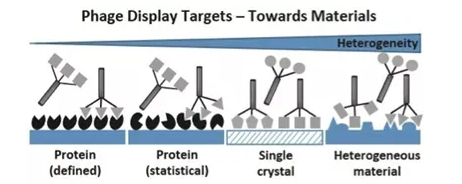
Fig. 1. Sequence diversity of peptides screened by phage display is related to receptor heterogeneity
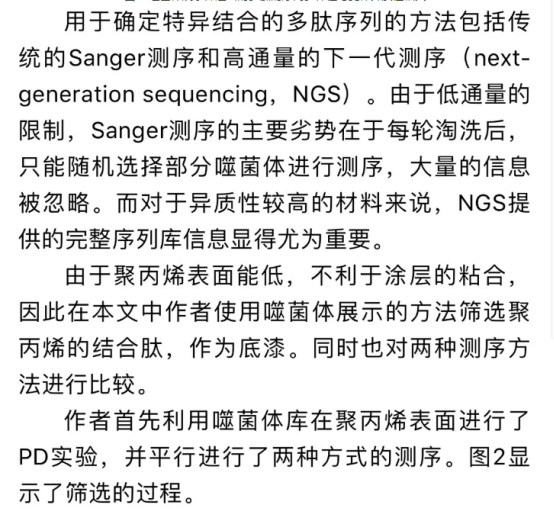
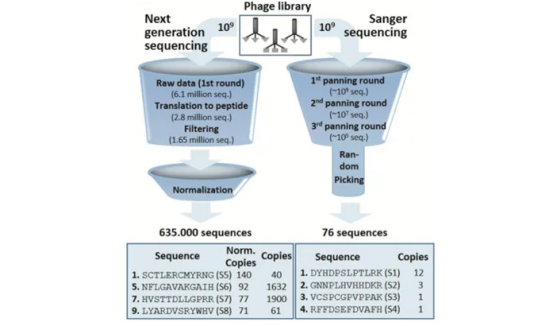
Figure 2. Schematic diagram of Sanger sequencing and ngs sequencing screening process
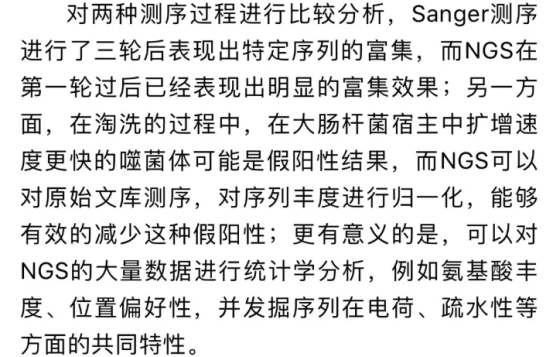
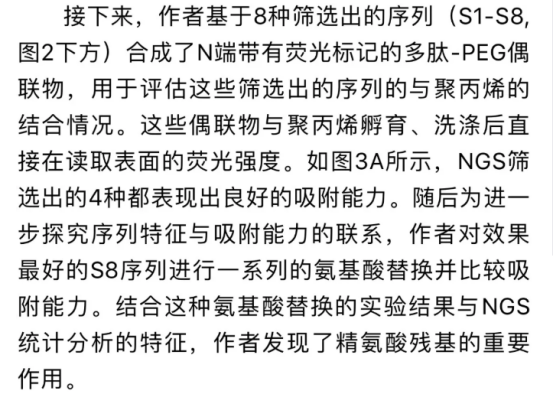

Fig. 3. Binding properties of peptide peg conjugate with polypropylene
(A) The results showed that there were 8 kinds of screened sequences; (b) the variant of S8
Finally, the application effect of S8 as primer was tested. In the presence or absence of S8 primer, cyanoacrylate adhesive was used to bond stainless steel to polypropylene. Compared with that without primer, the bonding strength can be increased by 100%.
To sum up, we have screened out peptides that specifically bind to polypropylene by phage display combined with next generation sequencing, and it is hopeful that these peptides can be used as adhesive primer to improve the adhesion strength of polypropylene. The advantages of next generation sequencing are of great significance for screening highly specific peptides and revealing the relationship between sequence characteristics and functions.
If the original article is reprinted, please indicate the source( www.gotopbio.com )”


Contact Us
Tel: (+86) 400 610 1188
WhatsApp/Telegram/Wechat: +86 13621645194
+86 15021993094
Follow Us:




 Pharma Sources Insight July 2025
Pharma Sources Insight July 2025


